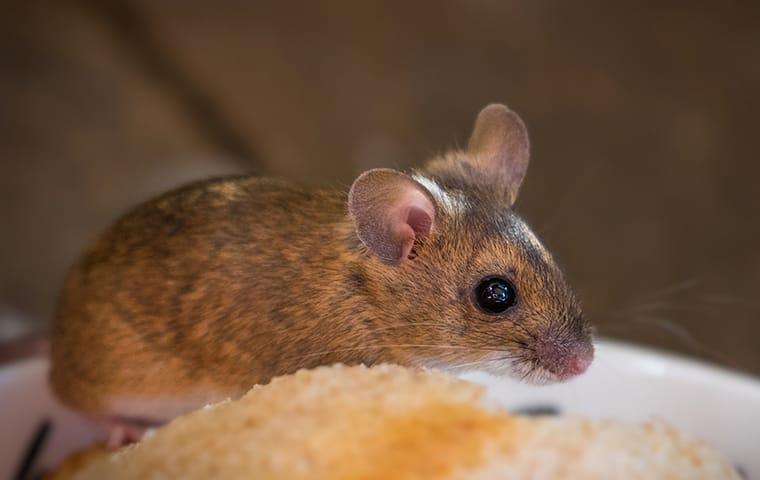In our Dallas service area, there are four basic rodents we deal with. Two of them are mouse species. Two of them are rat species. On the mouse side, we have the common house mouse, which likes to live inside our homes with us, and the deer mouse, which is much more likely to infest barns, sheds, and outbuildings. On the rat side, we have the Norway rat, which prefers to create burrows in the ground underneath stacks of items in your backyard, and the roof rat, which commonly infests homes and likes to dwell in attic spaces. Each of these species may vary slightly in habitat preferences or in food preferences, but when it comes to managing rodents, there are several tricks that work for all these critters.

1. Deep Clean
Rodents of all sizes and all species are looking for a bite to eat inside your home. If you get rid of the food options, they might decide to live somewhere else. Some of the food sources they enjoy are sources you aren’t aware of. They’ll nibble on something that has been kicked under your fridge or has fallen down between your stove and the counter. They’ll eat crumbs under your toaster or food that has dropped onto your pantry floor. Routine deep cleaning can make a big difference in how attractive your home is for rodents and other pests. It is well worth the effort.
2. Proper Food Storage
Rodents chew their way into packaged foods. If you put boxes of food on your pantry shelves, mice and rats are likely to investigate, and it doesn’t take much effort for them to chew a hole large enough to get a meal. You can protect your stored foods by putting them in sealed glass or plastic containers. Do this with dog and cat food as well. Rodents aren’t picky about what they eat.
3. Remove Entry Points
There are many common ways rodents get into homes. If you know what these common entry points are, you’ll have an easier time locating vulnerabilities and sealing things up.
- Door sweeps
- Rubber weather stripping around exterior doors
- Window and door frames
- The seal around window and door frames
- The sole plates (also called the sills)
- Vents
- Unprotected weep holes
- Garage door sweeps
- Damaged screens and broken glass panes
4. Remove Clutter
Mice and rats are timid. They don’t prefer to be out in the open where they are exposed to predators. A yard that has lots of hiding places will be more interesting to a rodent. Removing yard clutter can have a big impact on rodent activity. It is also important to keep your grass trimmed and your landscaping neat. Rodents are less likely to chew holes when they don’t have cover. Keep this in mind as you look for the entry points listed above. A common area that should be checked often is underneath decks, patios, porches and exterior stairs. These structures offer the perfect places for a mouse to chew through even the toughest of spots.
5. Population Control
When you want the best possible control of mice and rats deploying traps is the only effective option. For the best results, you should reach out to a licensed pest control professional. Trapping rodents is difficult. If you’re trapping attempts fail, you’re not likely to know it. This can expose you to health threats and the potential for ongoing property damage.
Rodent Control in Dallas
At Evolve Pest Control, we deploy and monitor tamper-resistant traps according to field-tested strategies. You won’t have to wonder if your rodent control plan is effectively protecting you from rodent threats. When it comes to protecting your family and your personal items, you can trust our team of licensed and experienced pest professionals. We have the experience to get the results you’re looking for.

